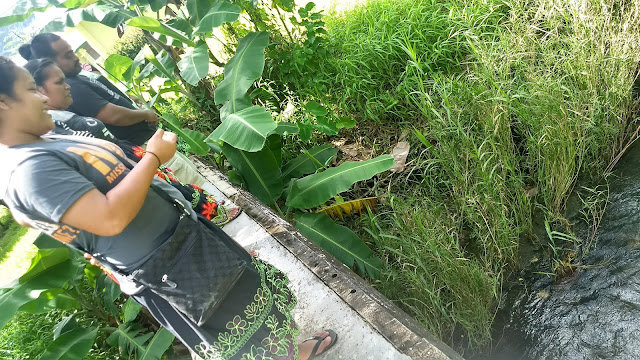Density of soap tested in the river

Laboratory one at the Kosrae campus was an investigation of the density of soap . Soaps in use included Ivory, Dial Basic, and a slab rectangular Jergens beauty bar. With data gathered in the science lab, the class moved to the computer lab. The advantage of the start the week ahead of regular classes is that the computer laboratory is available to the class. The students used Desmos to find the slope of the volume versus mass line and thus the density of the soap. The students predicted that the Ivory and Jergens would float, and the Dial Basic would sink. The Kosrae campus is blessed with a river in the front yard, and thanks to the agriculture program and maintenance, has a new bridge over that river, a perfect place to test the soap. The soap behaved as predicted confirming the mathematics of the experiment. The Dial Basic sank. A piece of Dial Basic that came in at 0.99 g/cm³ was deemed neutral buoyancy and indeed seemed to hover in the water before sinking ever so slo...




